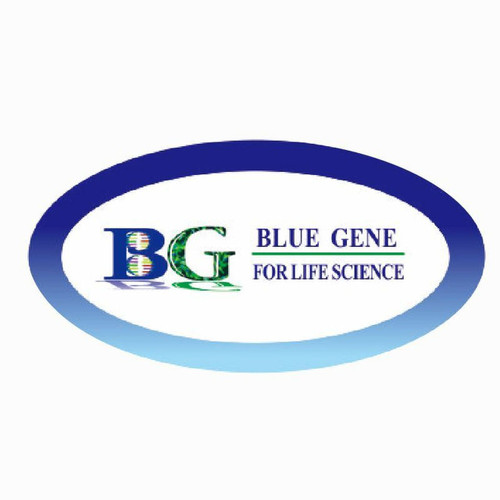Product Description
Human Phosphatidylinositol-4-phosphate 5-kinase type-1 alpha (PIP5K1A) ELISA Kit | AE27364HU | Abebio
Species Reactivity: Human (Homo sapiens)
Abbreviation: PIP5K1A
Alternative Name: RP11-68I18.9;
Application: ELISA
Range: 62.5-4000 pg/mL
Sensitivity: 34.8 pg/mL
Intra-Assay: ≤6.2%
Inter-Assay: ≤10.2%
Recovery: 0, 95
Sample Type: Serum, Plasma, Other biological fluids
Detection Method: Sandwich
Analysis Method : Quantitive
Test Principale: This assay employs a two-site sandwich ELISA to quantitate PIP5K1A in samples. An antibody specific for PIP5K1A has been pre-coated onto a microplate. Standards and samples are pipetted into the wells and anyPIP5K1A present is bound by the immobilized antibody. After removing any unbound substances, a biotin-conjugated antibody specific for PIP5K1A is added to the wells. After washing, Streptavidin conjugated Horseradish Peroxidase (HRP) is added to the wells. Following a wash to remove any unbound avidin-enzyme reagent, a substrate solution is added to the wells and color develops in proportion to the amount of PIP5K1A bound in the initial step. The color development is stopped and the intensity of the color is measured.
Product Overview: Phosphatidylinositol-4-phosphate 5-kinases synthesize phosphatidylinositol 4, 5-bisphosphate by phosphorylating phosphatidylinositol 4-phosphate. The deduced 549-amino acid protein has the conserved kinase homology domain of PIP5K family members. Within this domain, PIP5K1A shows 83% and 35% amino acid identity with PIP5K1B and PIP5K2A, respectively. Overall, the PIP5K1A and PIP5K1B proteins are 64% identical. Recombinant PIP5K1A expressed in bacteria had a molecular mass of approximately 66.3 kD. The authors isolated additional PIP5K1A cDNAs which they suggested represent splicing isoforms. Northern blot analysis detected a major 4.2-kb PIP5K1A transcript which had a wide tissue distribution.
Stability: The stability of ELISA kit is determined by the loss rate of activity. The loss rate of this kit is less than 5% within the expiration date under appropriate storage condition. The loss rate was determined by accelerated thermal degradation test. Keep the kit at 37°C for 4 and 7 days, and compare O.D.values of the kit kept at 37°C with that of at recommended temperature. (referring from China Biological Products Standard, which was calculated by the Arrhenius equation. For ELISA kit, 4 days storage at 37°C can be considered as 6 months at 2 - 8°C, which means 7 days at 37°C equaling 12 months at 2 - 8°C) .
 Euro
Euro
 USD
USD
 British Pound
British Pound
 NULL
NULL












